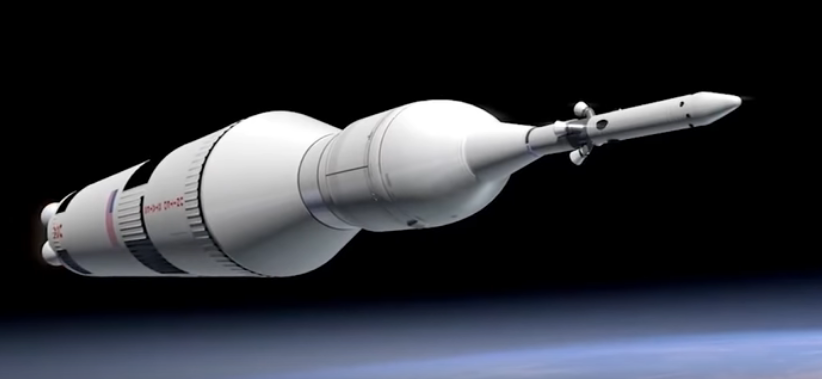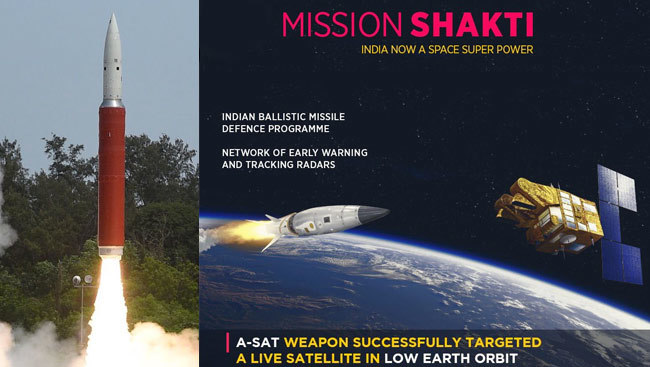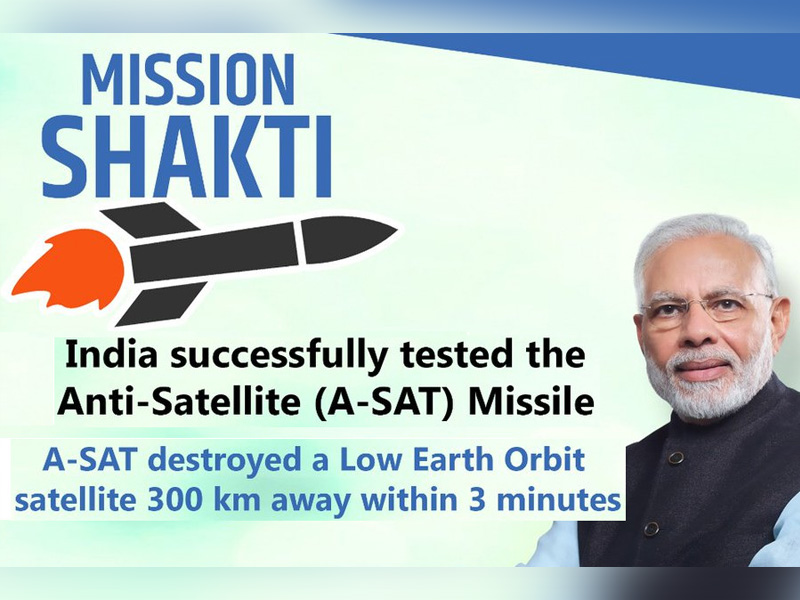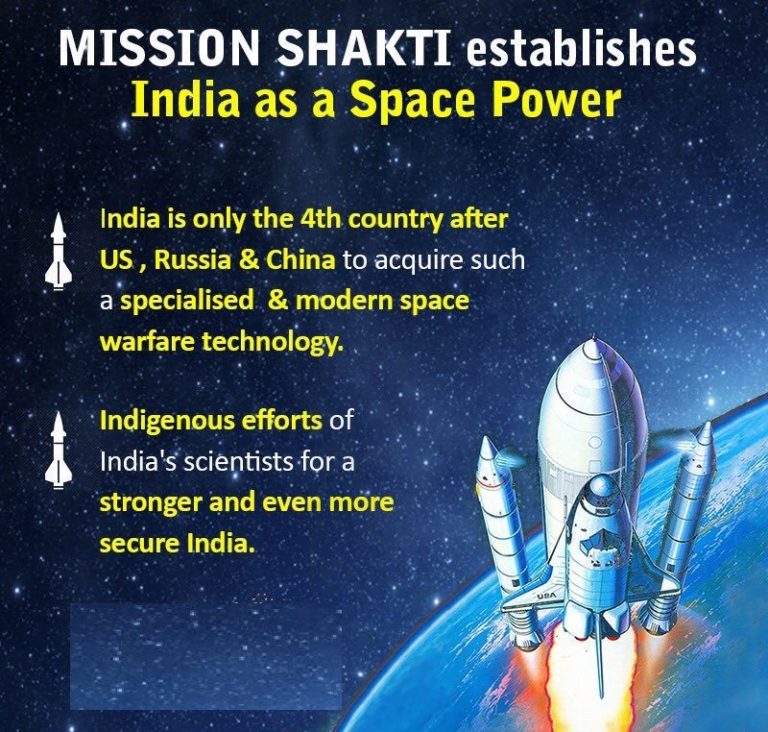Indian Anti Satellite Mission- Mission Shakti 2019

Mission Shakthi – is India’s first anti-satellite mission tested successfully in 2019. India is the fourth nation on the elite list of countries – after the USA, Russia and China – with anti-satellite missile capability.Prime Minister Narendra Modi announced India’s success in a special announcement to the nation.Mission Shakti was a highly complex, conducted at extremely high speed with remarkable precision.
Mission Shakti’ took three minutes and destroyed a target satellite at an altitude of 300 km in low-Earth orbit .

As per Modi’s description, India’s anti-satellite destroyed a target at an altitude closer to the US test, which produced limited debris that decayed out of orbit within a year’s time. The US test shot down a satellite at an altitude of 240 km.

In the past, Indian officials had discussed about a nascent ASAT capability but did not hint to any specific system.
Moving forward, in 2012, India DRDO Head V.K. Saraswat stated that the country had the components to put an anti-satellite weapon together.
Saraswat said that India would not perform an anti-satellite test at that time.
“We will not do a physical test (actual destruction of a satellite) because of the risk of space debris affecting other satellites,” said Saraswat.
Saraswat said that India’s anti-ballistic missile (ABM) defence system could be developed as an ASAT weapon, along with its Agni series of missiles. India had everything needed to destroy a satellite in space. DRDO’s Agni-5 intermediate range ballistic missile (IRBM) is capable of hitting targets on land and in space, according to observers. Indian Space Research Organisation (ISRO) achieved the capability of making pinpoint hits in space with weapon payloads of up to 2,000 tonnes with its Goe Synchronous Satellite Launch Vehicle (GSLV) series.
ASAT weapon is used to destroy enemy satellites during the war. While many nations have operational ASAT systems, no country has still used their ASAT system in warfare.
In the past, a few nations have shot their own satellites (non-functional) to demonstrate or test their ASAT capabilities and prove military strength as now India is one.

The ASAT development, apart from highlighting India’s power in space technology, also assumes significance in the context of Pakistan and China. India, certainly, won’t like to be surprised by C4ISR-driven (Command, Control, Communications, Computing, Intelligence, Surveillance and Reconnaissance) warfare.
